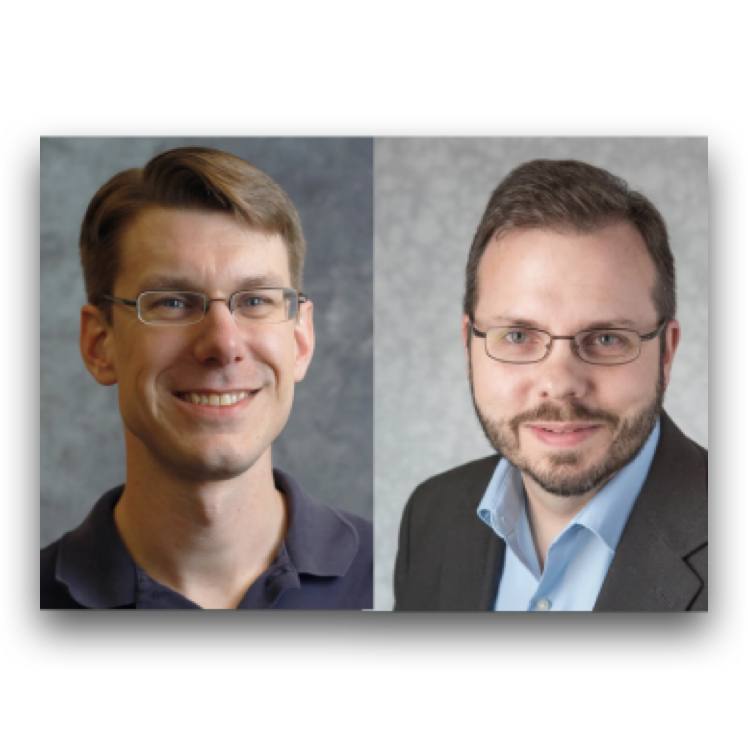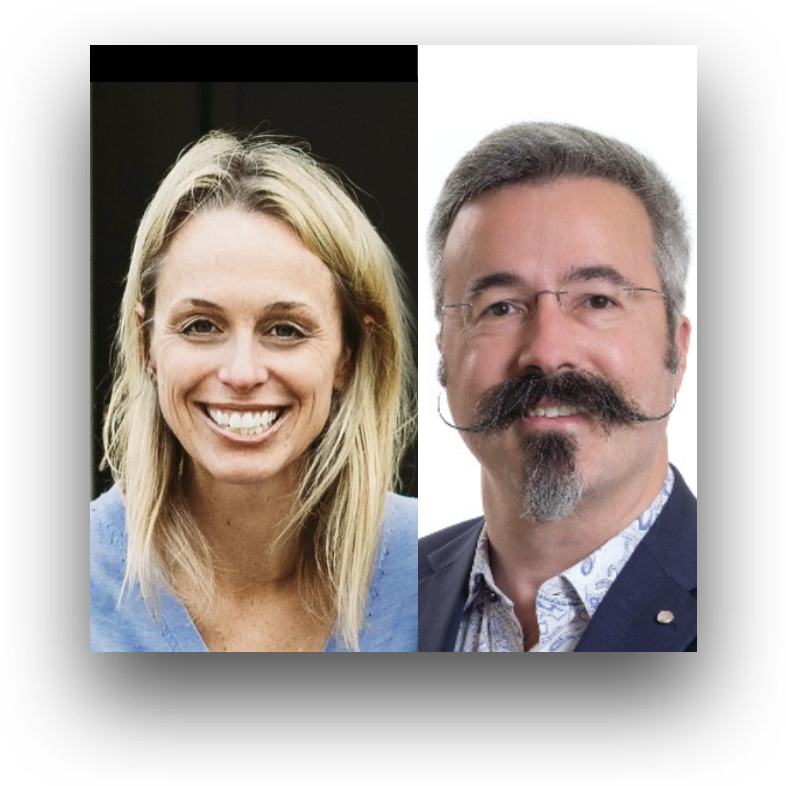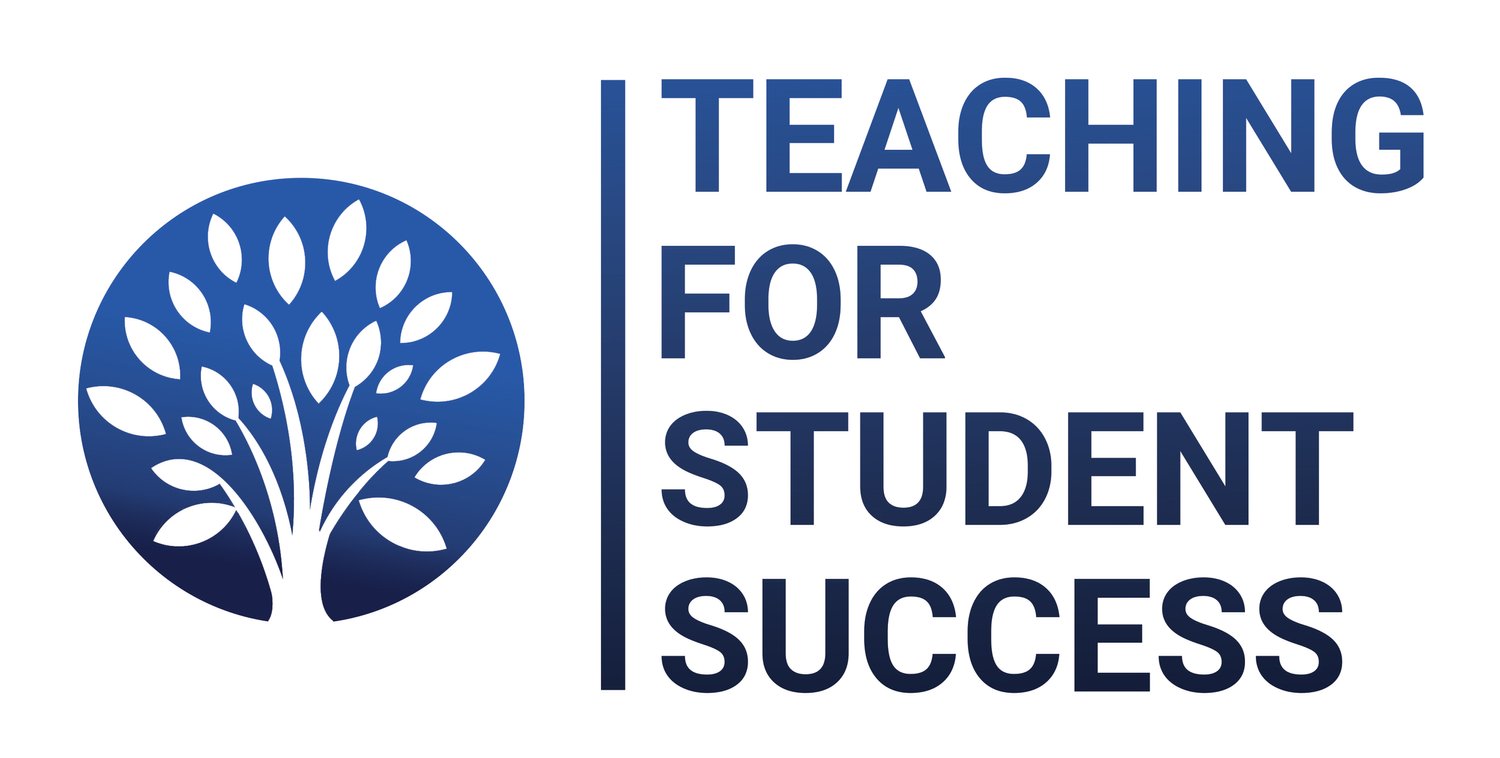

Episode 30. Inclusive Excellence: Content Is Not Enough! with Oscar Fernandez
Our current students in higher education are more diverse than ever before by a variety of demographic measures. Unfortunately, many of these demographics groups perform less well than the majority as measured by average GPA and graduation rate. In this episode we talk with Dr. Oscar Fernandez, Associate Professor of Mathematics at Wellesley College about Inclusive Excellence, an effort to create a community of faculty, staff, and students who are engaged in the continuing process of increasing institutional capacity for the inclusion of all students and supporting students efforts to excel.

Episode 29. The Syllabus Lives! Helping Students Feel Known, Needed & Cared For with Matthew Cheney
A huge amount of information must be provided to students at the outset of every course. Enter the SYLLABUS! A universal one-way communication tool that can set the tone for your course and for your relationship with your students. It defines the rules of engagement - the struggle for power between student and faculty. In this episode we talk about the syllabus; how it is used, how it can be used and how it can be abused with Dr. Matthew Cheney who has written extensively about the cruelty-free syllabus.





Episode 24: Inclusify Your Teaching: Learning is for Everyone with Drs. Kelly Hogan and Viji Sathy
In higher education our introductory classes are more diverse than ever. That’s great! Our graduating classes? Less diverse. That’s bad! Faculty play a critical role in this loss of diversity and therefore have a responsibility to address the issue. In this episode, Dr. Viji Sathy and Dr. Kelly Hogan, authors of “Inclusive Teaching: Strategies for Promoting Equity in the College Classroom” (2022) discuss a wide range of evidence-based practices that can help our most challenged, our most diverse students succeed, improving classroom equity. Please listen, then take action!

Episode 23: Strangers in a Strange Land: How Black Students Succeed at a Primarily White Institution with Dr. Julie Stanton
Higher education is recognizing the importance and value of diversity and inclusivity in our institutions, our classes, our majors, and in the workforce. Along with this recognition are efforts to increase the success and graduation rates of all students with particular attention to our historically excluded, minoritized, marginalized, and first generation students. Many approach this work from a perspective of deficits: students aren’t succeeding because of what they are missing. An alternative perspective is anti-deficit: recognizing what students are doing to succeed. For example: Instead of the deficit perspective: “Why don’t certain groups of students persist?” One might reframe the question and ask “How do certain groups of students manage to persist and earn degrees despite any number of negative forces that are working against them?“. Dr. Julie Stanton, Associate Professor in the Department of Cell Biology at University of Georgia in Athens Georgia talks about her Participatory Action Research project that informs us about strategies that black students use to succeed at a primarily white institution. Please listen for an engaging and fascinating discussion of community cultural wealth.

Episode 22: Connecting Classroom Inequities to Student Performance: EQUIP, a Tool for All? with Daniel Reinholz
As researchers study the success of students in active classrooms, they expose new questions to ask, they generate new data to analyze. These data put classrooms implementing active learning practices under the microscope. In looking closely at the details of implementation, researchers are now uncovering evidence of practices resulting in inequities, in some and perhaps most active learning environments. In this episode, we talk with Dr. Daniel Reinholz about his classroom observational analytical tool, EQUIP, and discuss how Daniel and his co-authors have used this tool to identify inequities in classrooms, inequities that may underlie differences in student performance. Fixing these inequities may not be hard, but one has to identify the problem first. EQUIP may be one tool we all need.

Episode 21: Teacher Noticing and the Generative Classroom with Dr. Tessa Andrews
In this episode we parse the massive Active Learning Umbrella and discuss a particular type of active learning classroom, the generative classroom in which students generate their knowledge. Dr. Tessa Andrews (University of Georgia) discusses her research investigating how expert instructors think about, prepare and implement active learning in their generative classrooms versus how novices think about, prepare and implement active learning. The results are fascinating and instructive.
Please listen, learn, and share.

Episode 20: The Benefits of Diverse Role Models: The Scientist Spotlights Initiative with Jeff Schinske
In this episode, I have a conversation with Jeff Schinske, Professor of Biology of Foothill College, part of the California Community College system about the impacts of the NIH-funded Scientist Spotlights Initiative. The Scientist Spotlights Initiative (SSI) empowers middle/high school, college, and university science educators to implement inclusive curricula that help ALL students see themselves in science. The SSI provides access to easy-to-implement assignments/activities that link course content to the stories of counter-stereotypical scientists.




Episode 16: The Most Contentious Subject in the Scholarship of Teaching and Learning with Jessamyn Neuhaus
“The Research is Pretty Clear that there is one thing and only one thing that across the board improves teaching. Do you know what that is, Steve?” This is the first episode of two part series with Dr. Jessamyn Neuhaus, author of Geeky Pedagogy: A Guide for Intellectuals, Introverts, and Nerds who want to be effective teachers. published in 2019 by West Virginia University Press. For all the geeks, introverts, and nerds out there - this episode is for YOU! So much so, that this book creates a new acronym - at least new to me: GIN: Geeks, Introverts, and Nerds. There is of course some likelihood that all of my listeners, or a great many already self-identify as GINs or others - such as your partners, children or students - might identify you as one….so, keep listening for a special episode specifically to discuss how geeks introverts and nerds - those who might not want to play the extrovert in the front of the class - might adopt practices that can help us to be more effective teachers - resulting of course in improved rates of student success.

Episode 15: The Research is Pretty Clear…with Jessamyn Neuhaus
“The Research is Pretty Clear that there is one thing and only one thing that across the board improves teaching. Do you know what that is, Steve?” This is the first episode of two part series with Dr. Jessamyn Neuhaus, author of Geeky Pedagogy: A Guide for Intellectuals, Introverts, and Nerds who want to be effective teachers. published in 2019 by West Virginia University Press. For all the geeks, introverts, and nerds out there - this episode is for YOU! So much so, that this book creates a new acronym - at least new to me: GIN: Geeks, Introverts, and Nerds. There is of course some likelihood that all of my listeners, or a great many already self-identify as GINs or others - such as your partners, children or students - might identify you as one….so, keep listening for a special episode specifically to discuss how geeks introverts and nerds - those who might not want to play the extrovert in the front of the class - might adopt practices that can help us to be more effective teachers - resulting of course in improved rates of student success.

Episode 14: Faculty Mindset: A Hidden Bias That Impacts Student Success
Many faculty participate in professional development programs that promise increases student success and decreases in the opportunity gap. Programs that train faculty in evidence-based practices have reason to promise these outcomes. However, some faculty that go through these trainings implement theses practices, others don’t. What are the factors that underlie this choice to adopt proven practices or not? Gender? Seniority? Concern about teaching evaluations? In this episode, we discuss a hidden bias that impacts the adoption of evidence-based teaching practices: Mindset! Faculty that have a growth mindset about their students adopt evidence based practices at a higher rate than faculty that have a fixed mindset about their students. Since active learning and other student-centered teaching practices have been shown to improve student success, equity and inclusivity, understanding barriers to adoption of these practices is a critical issue. It’s a critical issue especially for the students whose performance would be positively impacted by the adoption of student centered practices. Perhaps professional development workshops related to evidence based practices should spend more time addressing faculty mindset about students so that more faculty commit to and implement active learning practices in their classes.

Episode 13: Stress, Grades, and the American Way! Time for a Re-boot.
The percentage of students on our campuses suffering from depression doubled from 2009 to 2019. Suicides increased 50% over the same period. The pandemic probably hasn’t helped. Campuses nationwide are responding by increasing access to health care professionals and training staff and faculty to identify stressed students. However, most campuses are not dealing with one of the most significant stressors in student’s lives, GRADES! In this episode, we talk with Dr. Joshua Eyler, Director of Faculty Development at the University of Mississippi about the stress of grades and how institutions and faculty need to rethink approaches to decreasing stress by changing how we think about and act on grading and evaluating students. We rely on grades, a time tested but inaccurate and misleading assessment system, a human construct, first brought into higher education in the 1790s. Time for a reboot, perhaps?

Episode 12: Failure is Just A Learning Opportunity: Growth Mindset vs. Economic Disadvantage
Many of your students grew up economically disadvantaged. Without intervention, economically disadvantaged students are more likely to leave the academy than economically advantaged students. While no one expects faculty to solve students economic problems (well, maybe we can help by minimizing costs of textbooks), we as faculty can significantly impact the academic performance of these students with a few simple, no-cost interventions. Interventions for both the faculty and the students. If you want to help your economically disadvantaged students succeed, if you really want to help all of your students succeed, you must listen to Dr. Susan Claro in this episode. Deans and Provosts, pay attention!
